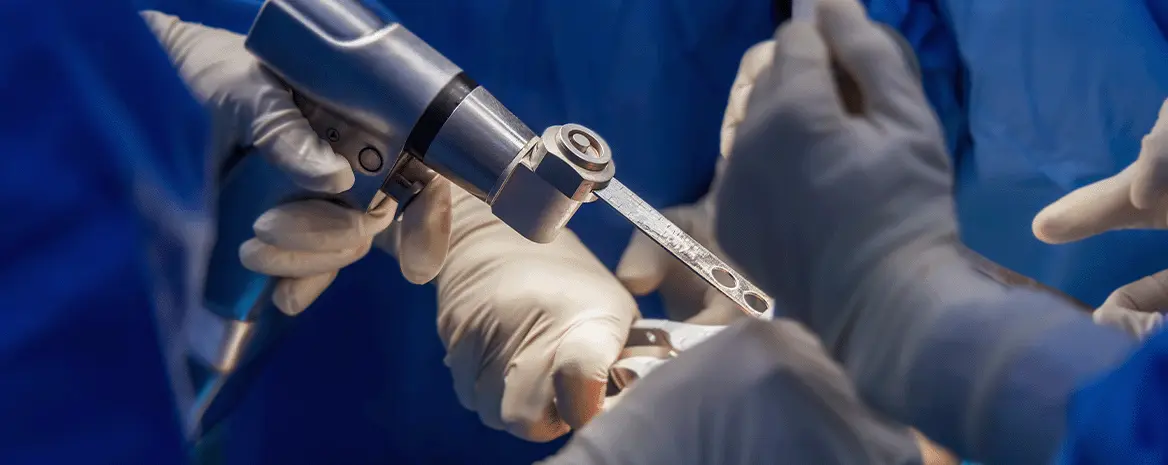Foods To Avoid After Rhinoplasty To Recover Faster

Your actions after nose surgery determine how quickly you recover.
While there’s a lot we could discuss, one extremely important element is your diet.
Taking the right food helps quicken your recovery processes. The wrong foods, on the other hand, can worsen swelling, delay healing, or even lead to infection.
Okay, intimidating you wasn't our intention and we really pray the best for you.
That’s why we created a list of foods to avoid after rhinoplasty to help you protect your nasal tissues, reduce discomfort, and accelerate recovery.
Let’s dive in.
What foods are you not allowed to eat after rhinoplasty?
Your diet after nose surgery can help you with a smooth recovery and minimize the post-op side effects.
Remember that your body finds it difficult to digest certain foods because of general anesthesia, fluid imbalances, and many other reasons.
That’s one of the reasons why patients suffer from constipation after the surgery (among many other issues).
This explains why knowing what NOT to eat after rhinoplasty is as important as knowing what to eat.
Below, we’ve divided the blog into 3 main sections each highlighting the foods you need to avoid after your surgery.
Phase 1: Acute Inflammation
Duration: 1-7 days
Your nose experiences the most swelling, tenderness, and bruising during the first week.
Your body is already trying hard to repair tissues, so avoiding all the foods that trigger inflammation or cause any discomfort is advisable.
Let’s look at the food we have to avoid.
Spicy and salty foods
Spicy foods irritate the mucous tissues inside your nose which may cause you to sneeze.
This is highly undesirable as it can interrupt your healing process.
In addition, they also cause other digestive problems such as high blood pressure and nausea.
Examples: Hot peppers, chili sauce, and salsa.
On the other hand, salty foods can cause fluid retention which prolongs the swelling of your nose.
Examples: Fast foods, chips, and processed snacks high in sodium.
Hard and crunchy foods
Hard and crunchy foods can strain your facial muscles as they require excessive chewing and jaw movement.
Chewing these can also cause discomfort and pain, making the healing process more challenging.
Examples: Raw vegetables, nuts, and granola.
Alcohol and caffeine
Having alcohol after rhinoplasty is a BIG NO. It causes swelling, poor wound healing and even bleeding.
And since you’re also taking medications, note that alcohol can interact negatively with them, leading to serious health effects.
Examples: Wine, beer and liquor
Similarly, caffeine also contributes to slower wound healing. So, it’s advisable not to have it during your recovery period.
Examples: Coffee, energy drinks, and certain teas.
Dairy
Dairy products increase mucus production in your nose and cause nasal congestion and discomfort.
This adds to the pressure in your nasal passages and makes breathing difficult, especially when your nose is swollen from surgery.
Examples: Milk, cheese, and ice cream.
Phase 2: Collagen Remodeling
Duration: 2-4 weeks
In this phase, your body actively starts producing collagen and repairing tissues.
This is why you may notice a gradual reduction in swelling.
While you’re well on your way to repairing your nose structure, some foods can still slow your healing process.
Let’s take a look at them.
Highly processed foods
Processed foods are loaded with preservatives, excessive sodium, and unhealthy fats.
All these contribute to increased swelling and prolong your healing process.
They also lack essential nutrients including vitamins A and C which are important for tissue repair.
Examples: Fast foods (burgers, pizzas), packaged snacks, and frozen meals.
Sugary foods
Sugar can cause spikes in blood sugar levels, which interferes with the body's ability to repair and heal effectively.
This not only slows down your collagen production but also weakens your immune system and increases the risk of post-op complications.
Examples: Candies, pastries, sugary cereals, and sodas.
Red meat in excess
Red meat provides the necessary protein.
However, it is high in saturated fats, and consuming it in excess can cause inflammation.
Instead, we’d suggest you opt for lean proteins like chicken, fish, eggs, and other plant-based sources like lentils and beans.
Examples: Fatty cuts of beef and pork, salami, sausages, and bacon.
Phase 3: Final Shaping
Duration: 2-6 months
At this stage, the collagen produced earlier is maturing and your nose is nearing its final form.
You’ll also see a decline in swelling. While your nose has undergone major changes, remember that the tissues are still adjusting.
What you eat can still affect the recovery rate, so it’s best to avoid certain foods for best results.
Let’s take a look at some of them.
Alcohol and excess sodium
Alcohol and sodium both cause fluid retention and contribute to prolonged swelling and recovery.
Moreover, alcohol interferes with nutrient absorption and weakens your immune system.
Pair it with the ability of sodium to disrupt the body’s hydration balance (essential for reducing inflammation and swelling) and you’ll see why it's best to avoid both.
Examples: Ramen noodles, cocktails, and processed foods high in salt like canned soups or frozen dinners
Junk food and trans fats
Processed and deep-fried foods contain trans fats which can interfere with tissue remodeling.
This disrupts the production of collagen which is essential in refining the skin and tissues around your nose.
Examples: Fried chicken, donuts, food items like burgers and fries, and packaged cookies.
Excessive caffeine
Taking excessive caffeine dehydrates your body, reduces skin elasticity, and delays the natural tightening of nasal tissues.
It also causes your swelling to last longer.
Examples: Coffee, energy drinks, and caffeinated sodas.
Foods that clash with post-op medications
Certain foods after surgery can have unwanted and unsafe effects on your recovery and overall health.
While it’s best to consult your healthcare provider for personalized advice, there are a few foods you don’t want to eat.
Grapefruit
Grapefruit contains compounds that can interfere with enzymes in your liver, responsible for breaking down many medications.
It makes your liver absorb these drugs in higher amounts than normal and increases the risk of side effects.
Instead, opt for vitamin C-rich fruits like oranges and strawberries as they don’t interfere with medications.
Leafy greens
Leafy vegetables like kale and spinach are high in vitamin K which can interact with the effectiveness of blood thinning medications like warfarin.
Taking these in a consistent amount is important but sudden changes can affect warfarin's effectiveness.
Garlic, ginger, and ginseng
These contain natural ingredients with blood-thinning properties.
Blood thinners and pain relievers can have enhanced effects when combined with these ingredients, increasing the risk of bruising or excessive bleeding.
Post-op care doesn’t have to be this hard
You might feel like you’re being deprived of your favorite foods and drinks.
While we still have to limit our food consumption, we don’t have to avoid them completely.
You can still have hard and chewy foods. Just make sure to prepare them appropriately.
For example, you can eat apples and carrots by cutting them into thin slices.
Post-op care can be overwhelming, and food is one piece of the puzzle.
We, at QCG, can help you connect with qualified healthcare providers for personalized guidance throughout your rhinoplasty journey, so that you don’t have to spend hours guessing your next step.

